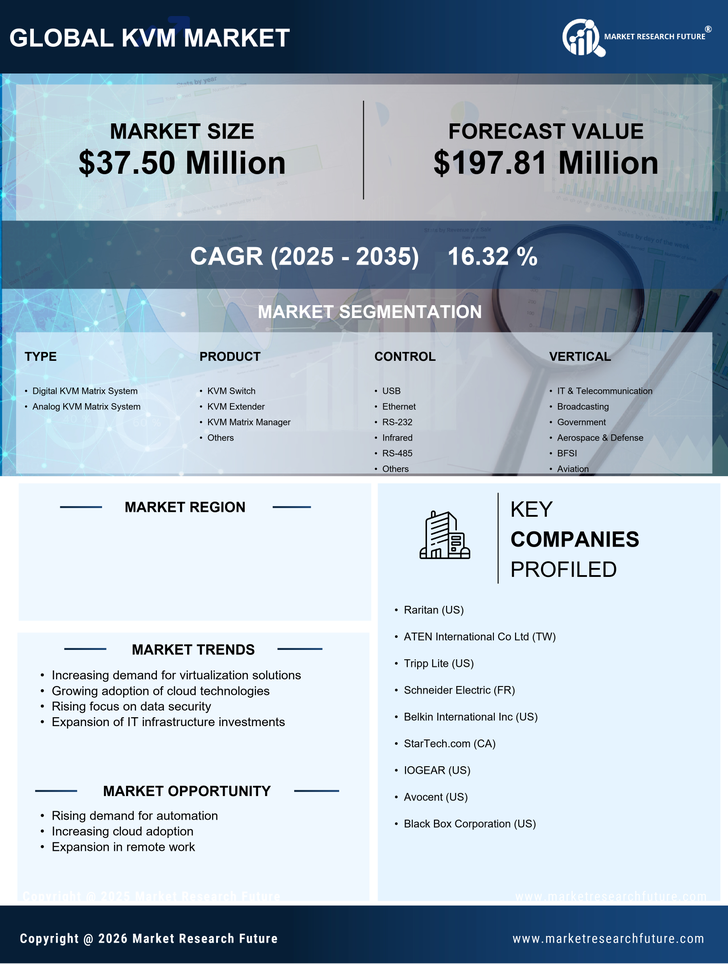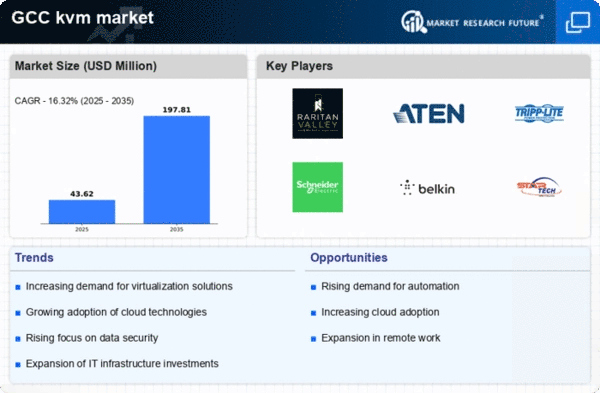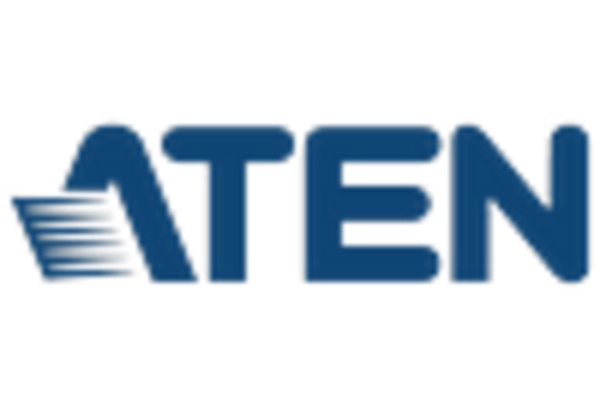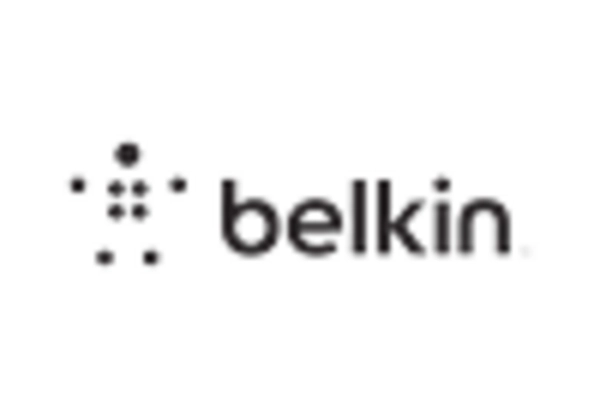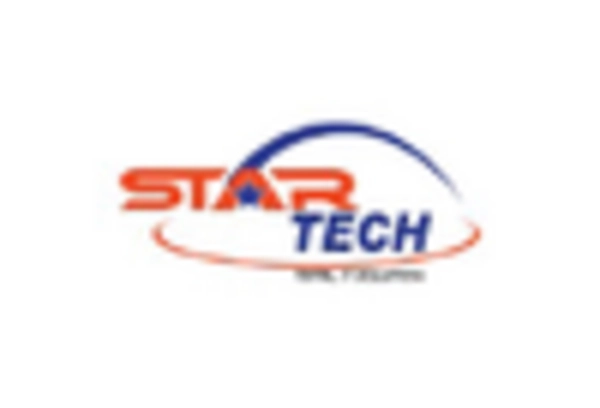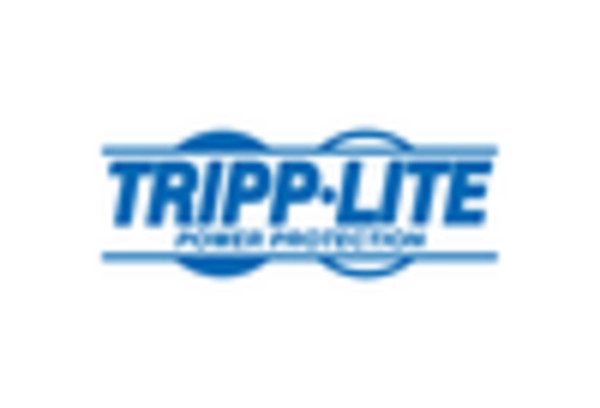Emergence of Smart Technologies
The emergence of smart technologies is reshaping the kvm market in the GCC. With the rise of IoT and smart devices, there is a growing demand for KVM solutions that can seamlessly integrate with these technologies. Organizations are seeking KVM systems that not only manage traditional servers but also support smart devices, enhancing overall operational efficiency. This trend is likely to drive innovation within the kvm market, as manufacturers develop products that cater to the evolving needs of businesses. The integration of smart technologies is expected to contribute to a market growth rate of around 10% over the next few years, as companies look to leverage advanced KVM solutions for improved management of their IT environments.
Rising Need for Data Center Optimization
In the GCC, the kvm market is significantly influenced by the rising need for data center optimization. As organizations strive to enhance their IT infrastructure, KVM solutions are becoming essential for efficient management of server resources. The ability to control multiple servers from a single interface not only reduces operational costs but also improves energy efficiency. Recent statistics indicate that data centers in the region are expected to increase their investment in KVM technologies by approximately 15% over the next three years. This trend underscores the importance of KVM solutions in optimizing data center operations, thereby driving growth in the kvm market. Companies are likely to prioritize investments in advanced KVM systems that offer scalability and reliability.
Growing Focus on IT Infrastructure Security
The kvm market is witnessing a growing focus on IT infrastructure security, particularly in the GCC region. As cyber threats become more sophisticated, organizations are increasingly prioritizing secure access solutions. KVM switches, which provide secure and controlled access to critical systems, are gaining traction as a vital component of IT security strategies. The market is projected to expand as businesses recognize the importance of safeguarding sensitive data and ensuring compliance with regulatory standards. Recent reports suggest that investments in KVM security solutions could rise by 20% in the coming years, reflecting the urgent need for enhanced security measures within the kvm market. This trend indicates a shift towards more robust KVM technologies that integrate advanced security features.
Increased Adoption of Remote Work Solutions
The kvm market is experiencing a notable shift due to the increased adoption of remote work solutions across various sectors in the GCC. Organizations are increasingly investing in technologies that facilitate remote access to servers and applications, which enhances productivity and operational efficiency. This trend is reflected in the growing demand for KVM switches and related products, as they allow users to manage multiple computers from a single workstation. According to recent data, the market is projected to grow at a CAGR of 8.5% over the next five years, driven by the need for seamless remote connectivity. As businesses continue to embrace flexible work arrangements, the kvm market is likely to see sustained growth, with a focus on innovative solutions that cater to remote workforce needs.
Expansion of E-commerce and Digital Services
The expansion of e-commerce and digital services in the GCC is significantly impacting the kvm market. As online businesses proliferate, there is an increasing demand for reliable IT infrastructure that can support high traffic and data processing needs. KVM solutions play a crucial role in ensuring that e-commerce platforms operate smoothly by providing efficient server management capabilities. Recent data indicates that the e-commerce sector in the GCC is expected to grow by 25% annually, which in turn drives the need for robust KVM technologies. This growth presents a substantial opportunity for the kvm market, as businesses seek to invest in solutions that enhance their operational capabilities and ensure seamless service delivery.
